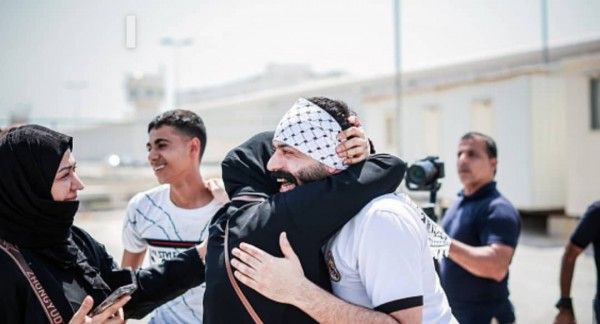|

Bahrain: The Day After the Release of Political Prisoners? Baqer Darwish Chairman of the Bahrain Forum for Human Rights Read: https://bh-mirror.no-ip.org/news/65335.html This article is a general discussion about the day after a partial, full, or limited release of political prisoners in Bahrain. It addresses the rights of over 20,000 cases subjected to arbitrary arrest since 2011 up to this year. A fundamental principle in this discussion is: comprehensive political reform is the path to curbing the environment of violations and addressing their consequences. However, we must raise questions about the current reality! For years, the issue of prisoners of conscience has swung between repeated promises to resolve the matter. One manifestation of those promises was the discussion of “alternative sentencing,” which the government has not rushed to implement. In fact, it created complications even in its application. Here, we recall a basic human rights principle: full freedom and compensation are absolute rights for all prisoners of conscience. Applying procedures designed for criminal offenders is not the ideal solution to close this case. Despite the release of a significant number of prisoners of conscience in past periods, the rate of arbitrary arrests has not stopped in the past year. As an example, arbitrary arrests accounted for 39.9% relative to the number of those released in 2025. What does this mean? Emptying prisons without “transitional justice” is not enough to close the doors of political imprisonment in Bahrain. Moreover, the suffering of those released starts after their release from prison, as they face challenges such as finding employment, returning to previous jobs, undergoing psychological and physical rehabilitation, obtaining legal, social, and housing rights like other citizens, and dealing with the consequences of political imprisonment—such as the desire to resume education, among others. There are numerous challenges—particularly since the authorities have learned from past experiences to adopt a discourse of “fragmenting rights” to the bare minimum. Unfortunately—and this must be criticized—some voices in the public sphere are swayed by this discourse under various justifications. For example, rather than transferring some prisoners of conscience to open prisons, they should have been granted full freedom, and Jaw Central Prison—known for its infamous record of abuses that should be closed and its repercussions addressed—should have been shut down. Expressing satisfaction with the deprivation of released individuals’ rights is not healthy at all. There is a difference between celebrating their release and reducing some of their suffering. First: There is a need to correct the human rights discourse. These are victims and prisoners of conscience, and they have the full right to freedom and dignity. No one, regardless of who they are, has the right to waive their rights—or justify such waivers, especially when it touches their dignity. The path toward closing prisons must be founded on calls for serious and radical reform and change. Moreover, the principle of accountability and ending impunity is essential to stop the community of perpetrators that has been formed of security personnel and others—who undoubtedly require prosecution and deterrent punishment. Some may even need to be admitted to psychiatric facilities to explain this level of cruelty in torture and abuse. All of this requires a comprehensive future roadmap for a transitional justice project—a term whose absence from some human rights discourse is puzzling! Furthermore, activating the role of civil society, in all its forms, in any path forward requires creating a healthy environment for political and human rights engagement. There is also another critical point: Even if we reach a state close to emptying prisons, are over 20,000 cases of arbitrary detention merely a statistic for human rights monitoring? These cases demand a path of justice and compensation. Therefore, the conversation must go far beyond the current detainees. Second: There is a need for wider community mobilization. The society must resist pressure from the authorities to see prisoners of conscience as anything other than victims who deserve honor and respect for their suffering. This calls for social solidarity—emotionally, socially, and financially. Those released must feel fully embraced and supported to the best extent possible, especially in the face of the state’s negligence in fulfilling its duties of rehabilitation, compensation, and care. |